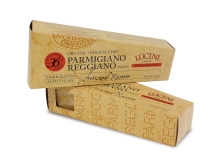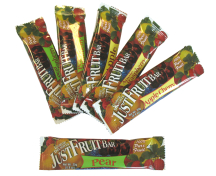Nestlé CEO calls for more GM crops
Consumers cannot translate trans-fat labels
Dairy label rule sparks lawsuits in Ohio
Italian cheese in individual wedges
All-fruit bar in small vending size

by Pan Demetrakakes
Executive Editor
Despite a slowing economy and increasing costs, the long-term financial picture for food manufacturers is encouraging, according to a new report from the Grocery Manufacturers Association.
The Food, Beverage and Consumer Products Industry: Achieving Superior Financial Performance in a Challenging Economy 2008, conducted for GMA by consulting firm PricewaterhouseCoopers LLP, notes that the food industry suffered a 2.2% decline in one-year shareholder returns in 2007. However, sales growth was 8.2% in 2007 over 2006 (up from 5.1% the previous year), and profitability was 30.2% (up from 28.1%).
The report identified the biggest challenge for the consumer packaged goods (CPG) industry in general as “how to offset rising commodities prices while preserving prospects for long-term growth.” It identified three “levers” to do so: “collaborating with suppliers, tapping international markets, and becoming more sustainable as a company.”
The report named packaging as a key component of sustainability. It quoted Tom Forsythe, a spokesperson for General Mills, as saying, “If we use less packing per unit of sale on a product, and therefore we have lower input costs, we can see that in the margins and that’s very profitable.” General Mills reconfigured some of its packaging to get more pallet loads onto a truck, and also lightened its cans for Progresso soup to save 2,000 tons of steel a year.
PricewaterhouseCoopers compared financial results for 27 companies that reported sustainability data against 33 that did not. It found that the companies with sustainability data, on average, had better return on assets, higher gross margins and return on sales, stronger cash flows and higher shareholder returns.
Other highlights of the report include:
• Package sizes have been proliferating due to retailer demands, sometimes beyond the point of profitability for manufacturers. “Indeed, sometimes there’s no real business case for multiple package types, apart from satisfying retailer formats,” the report states.
• Over-reliance on line extensions can backfire. The report noted that less than 2% of new brands achieve sales of more than $50 million the first year: “Instead of spending time and money promoting a third or fourth brand in a category that retailers may not want anyway, manufacturers need to refocus on core brands that drive growth and profitability.”
• Consumers are very interested in healthy products. The report noted that every one of the 10 bestselling new food and beverage products introduced in 2006 was diet or made some other health claim. (The top one, at $101 million in sales, was Campbell’s Reduced Sodium Soup.)
To access the report as a PDF file, clickhere.
TOP DEVELOPMENTS
Nestlé CEO calls for more GM cropsGenetically modified (GM) crops, which usually have higher yields than non-GM crops, may be more affordable to Europeans who can’t afford rising commodity costs, Nestlé CEO Peter Brabeck told theFinancial Times. Africa and several Asian nations are refraining from planting GM crops due to fear they will be rejected in Europe. According to a European Commission survey, only 21% of Europeans will eat genetically engineered food.
Consumers cannot translate trans-fat labels
According to theJournal of Public Policy and Marketing, consumers don’t understand trans-fat labeling. While a 2006 extension of the Nutrition Labeling and Education Act of 1990 required trans fat serving sizes to be included on nutrition labels, the labels do not list a percentage of recommended daily intake for trans fats, due to the FDA not having established an acceptable amount. However, the study found that consumers do respond positively to labels claiming “low in trans fat” or “zero trans fat.”
Dairy label rule sparks lawsuits in Ohio
The Organic Trade Association (OTA) and International Dairy Foods Association (IDFA) each filed a lawsuit against the Ohio Department of Agriculture for its rule to regulate labeling that would let consumers know if a company’s dairy products come from cows treated with recombinant bovine somatotropin (rBST). While the OTA accused Ohio of disregarding the federal Organic Foods Production Act, the IDFA accused the rule of going past FDA labeling guidance, and that it would require special labels for Ohio, which would be costly. Under the Ohio rule, no-rBST label claims must be followed by a disclaimer stating that the hormone has not been shown to make a difference in milk.

NEW PACKAGES
Italian cheese in individual wedgesAn Italian cheese company is distributing single-serve wedges of premium cheese for the American market. Lucini Italia is packaging wedges of organic Parmigiano Reggiano cheese in paperboard cartons with die-cut windows. The cheese is vacuum-wrapped at the point of production in Parma, Italy, and packed into the cartons, which have full nutrition information and UPC codes.

A 100% pure fruit bar, developed by a federal agency, is now out in an extra-small size for vending machines. The Agricultural Research Service, an arm of the U.S. Department of Agriculture, developed the chewy all-fruit bars and licensed the technology to Gorge Delights Inc., North Bonneville, Wash., which markets them as JustFruit Bars. The bar is now out in a 25-gram size to complement its 40-gram size. The smaller-size JustFruit is meant to be sold primarily through vending machines. The flowrapped film has vivid fruit graphics.
